Coronary Artery Bypass Grafting (CABG) Cost in South Korea from top hospitals starts from KRW 49679530 (USD 37000)approx
.Bypass surgery, also known as heart bypass surgery, creates a new pathway for blood and oxygen to bypass the blockage and reach the heart. This ensures that the cardiac muscle's blood flow is restored. The efficiency of this operation has also improved as a result of improvements in the field of coronary surgery. As a result, high success rates and little problems have resulted.
South Korea's healthcare system is capable of appropriately accommodating new difficulties in every speciality, including cardiology. These advancements are aimed at providing high-quality healthcare, reducing healing times, and assisting patients in regaining and maintaining excellent health. In South Korea, cardiac treatment is provided by professionals who have received training from prestigious medical institutes and have treated patients from all over the world.
Best hospitals in South Korea for Heart Bypass Surgery are International St Mary hospital, Asan Medical Center and many others.
The cost of Heart Bypass Surgery is US$ 23000 in South Korea, whereas it is US$ 56000 in Singapore, and US$ 27000 in Spain, and much more expensive in other European countries. However, the cost may vary based on the complexity of the case, other medical illnesses that may be present, immune-deficiency ailments, and the doctor's experience.
| Country | Cost | Local_currency |
|---|---|---|
| Czechia | USD 15000 | Czechia 340350 |
| India | USD 4200 | India 349230 |
| Israel | USD 30000 | Israel 114000 |
| Malaysia | USD 18000 | Malaysia 84780 |
| Poland | USD 6900 | Poland 27876 |
| South Korea | USD 37000 | South Korea 49679530 |
| Spain | USD 27000 | Spain 24840 |
| Thailand | USD 23400 | Thailand 834210 |
| Tunisia | USD 15000 | Tunisia 46650 |
| Turkey | USD 10000 | Turkey 301400 |
| United Arab Emirates | USD 25010 | United Arab Emirates 91787 |
Treatment cost

MediGence is offering immense facilities for your medical journey such as:
We provide packages at economical prices with a number of additional benefits which make it a better opportunity than spending actual hospital costs with singular benefits. Coronary artery bypass grafting (CABG) betters blood flow to the heart. It is a treatment option for a patient who has been suffering from Coronary Heart Disease. Coronary Heart Disease or Coronary Artery Disease in which plaque can add on within the coronary arteries reducing the oxygen-rich blood supply to the heart. In CABG a healthy vein or artery anywhere else from the body is connected to or grafted to the coronary artery which is blocked which bypasses the blocked part., We have outstanding options with all kinds of benefits for you to get the CABG surgery done in Sarvodaya Hospital and Research Centre, India.

We provide numerous services for your medical journey, including:
With us, you are sure to receive all the benefits at competitive prices which is a better choice than paying actual hospital costs. Coronary artery bypass grafting (CABG) betters blood flow to heart. It is a treatment option for a patient who has been suffering from Coronary Heart Disease. Coronary Heart Disease or Coronary Artery Disease in which plaque can add on within the coronary arteries reducing the oxygen rich blood supply to heart. In CABG a healthy vein or artery anywhere else from the body is connected to or grafted to the coronary artery which is blocked which bypasses the blocked part., We have outstanding options with all kinds of benefits for you to get the CABG surgery done in Fortis Hospital, Shalimar Bagh, India.
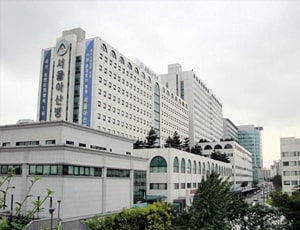
Asan Medical Centre located in Seoul, South Korea is accredited by ISO. Also listed below are some of the most prominent infrastructural details:

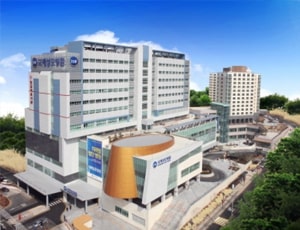
International St. Mary's Hospital located in Seoul, South Korea is accredited by JCI. Also listed below are some of the most prominent infrastructural details:
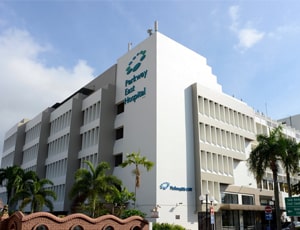
Parkway East Hospital located in Joo Chiat Pl, Singapore is accredited by JCI. Also listed below are some of the most prominent infrastructural details:
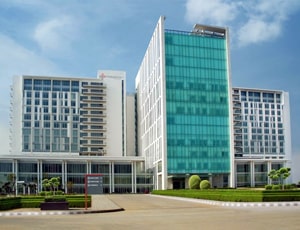
Types of Coronary Artery Bypass Grafting (CABG) in Medanta - The Medicity and its associated cost
| Treatment Option | Approximate Cost Range (USD) | Approximate Cost Range (INR) |
|---|---|---|
| CABG (Overall) | 4639 - 17356 | 380555 - 1442901 |
| On-Pump CABG | 4772 - 8478 | 386918 - 696773 |
| Off-Pump CABG | 5614 - 9564 | 464477 - 796524 |
| Minimally Invasive CABG | 8375 - 13605 | 706670 - 1093653 |
| Robot-Assisted CABG | 11119 - 17119 | 935709 - 1372632 |
| Redo CABG | 8510 - 13618 | 706777 - 1108570 |
DOCTORS IN 14 SPECIALITIES
FACILITIES & AMENITIES
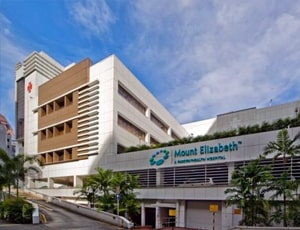
Mount Elizabeth Hospital located in Singapore, Singapore is accredited by JCI. Also listed below are some of the most prominent infrastructural details:
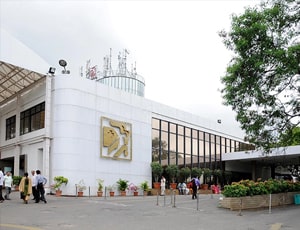
Types of Coronary Artery Bypass Grafting (CABG) in Apollo Hospitals and its associated cost
| Treatment Option | Approximate Cost Range (USD) | Approximate Cost Range (INR) |
|---|---|---|
| CABG (Overall) | 4818 - 17314 | 379211 - 1454836 |
| On-Pump CABG | 4835 - 8339 | 398744 - 695371 |
| Off-Pump CABG | 5733 - 9491 | 468789 - 774678 |
| Minimally Invasive CABG | 8319 - 13499 | 700756 - 1124393 |
| Robot-Assisted CABG | 11194 - 16807 | 904967 - 1354681 |
| Redo CABG | 8570 - 13302 | 701308 - 1111267 |
DOCTORS IN 14 SPECIALITIES
FACILITIES & AMENITIES
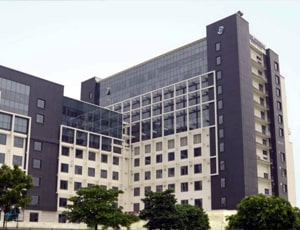
Types of Coronary Artery Bypass Grafting (CABG) in Venkateshwar Hospital and its associated cost
| Treatment Option | Approximate Cost Range (USD) | Approximate Cost Range (INR) |
|---|---|---|
| CABG (Overall) | 4271 - 15764 | 348541 - 1295271 |
| On-Pump CABG | 4324 - 7634 | 355034 - 623088 |
| Off-Pump CABG | 5062 - 8616 | 416591 - 704253 |
| Minimally Invasive CABG | 7646 - 12163 | 622641 - 995403 |
| Robot-Assisted CABG | 10141 - 15275 | 835523 - 1243073 |
| Redo CABG | 7648 - 12230 | 626336 - 1001298 |
DOCTORS IN 13 SPECIALITIES
FACILITIES & AMENITIES
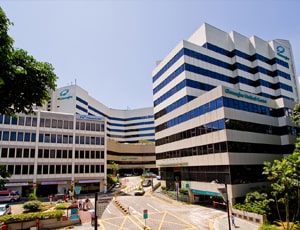
Gleneagles Hospital located in Napier Road, Singapore is accredited by JCI. Also listed below are some of the most prominent infrastructural details:
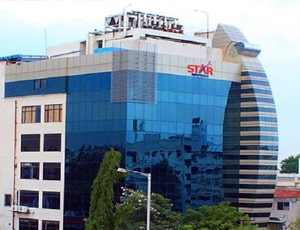
Types of Coronary Artery Bypass Grafting (CABG) in Star Hospitals and its associated cost
| Treatment Option | Approximate Cost Range (USD) | Approximate Cost Range (INR) |
|---|---|---|
| CABG (Overall) | 3917 - 14528 | 318549 - 1200800 |
| On-Pump CABG | 3966 - 7053 | 329088 - 573548 |
| Off-Pump CABG | 4666 - 7972 | 380825 - 655412 |
| Minimally Invasive CABG | 7023 - 11236 | 572525 - 923872 |
| Robot-Assisted CABG | 9266 - 14138 | 763845 - 1138321 |
| Redo CABG | 7037 - 11120 | 581585 - 933390 |
DOCTORS IN 12 SPECIALITIES
FACILITIES & AMENITIES
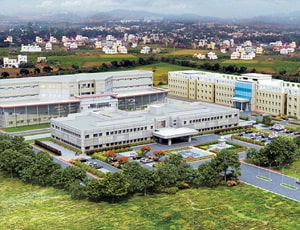
Types of Coronary Artery Bypass Grafting (CABG) in Global Health City and its associated cost
| Treatment Option | Approximate Cost Range (USD) | Approximate Cost Range (INR) |
|---|---|---|
| CABG (Overall) | 4706 - 17381 | 387205 - 1400732 |
| On-Pump CABG | 4703 - 8431 | 384313 - 693686 |
| Off-Pump CABG | 5729 - 9398 | 466759 - 784066 |
| Minimally Invasive CABG | 8424 - 13539 | 702097 - 1094977 |
| Robot-Assisted CABG | 11383 - 16782 | 903237 - 1407218 |
| Redo CABG | 8254 - 13542 | 699216 - 1096455 |
DOCTORS IN 14 SPECIALITIES
FACILITIES & AMENITIES
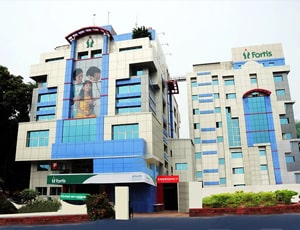
Types of Coronary Artery Bypass Grafting (CABG) in Fortis Malar Hospital and its associated cost
| Treatment Option | Approximate Cost Range (USD) | Approximate Cost Range (INR) |
|---|---|---|
| CABG (Overall) | 4247 - 15782 | 350101 - 1295476 |
| On-Pump CABG | 4323 - 7580 | 352323 - 625477 |
| Off-Pump CABG | 5068 - 8600 | 416059 - 706542 |
| Minimally Invasive CABG | 7624 - 12196 | 627122 - 1003375 |
| Robot-Assisted CABG | 10196 - 15292 | 835910 - 1249488 |
| Redo CABG | 7601 - 12127 | 623324 - 998601 |
DOCTORS IN 9 SPECIALITIES
FACILITIES & AMENITIES
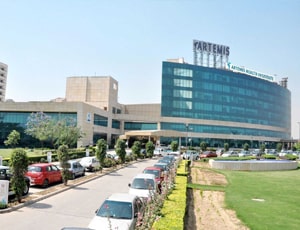
Types of Coronary Artery Bypass Grafting (CABG) in Artemis Health Institute and its associated cost
| Treatment Option | Approximate Cost Range (USD) | Approximate Cost Range (INR) |
|---|---|---|
| CABG (Overall) | 4790 - 17252 | 381574 - 1449205 |
| On-Pump CABG | 4756 - 8253 | 389368 - 684366 |
| Off-Pump CABG | 5570 - 9450 | 463186 - 792205 |
| Minimally Invasive CABG | 8357 - 13414 | 688416 - 1116326 |
| Robot-Assisted CABG | 11044 - 16955 | 919848 - 1378518 |
| Redo CABG | 8512 - 13552 | 680363 - 1103649 |
DOCTORS IN 15 SPECIALITIES
FACILITIES & AMENITIES
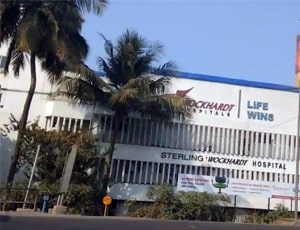
Types of Coronary Artery Bypass Grafting (CABG) in Sterling Wockhardt Hospital and its associated cost
| Treatment Option | Approximate Cost Range (USD) | Approximate Cost Range (INR) |
|---|---|---|
| CABG (Overall) | 4269 - 15701 | 348245 - 1291507 |
| On-Pump CABG | 4304 - 7596 | 353484 - 623386 |
| Off-Pump CABG | 5063 - 8653 | 414583 - 707089 |
| Minimally Invasive CABG | 7575 - 12152 | 622324 - 997866 |
| Robot-Assisted CABG | 10122 - 15209 | 835131 - 1243637 |
| Redo CABG | 7633 - 12151 | 621217 - 1001116 |
DOCTORS IN 14 SPECIALITIES
FACILITIES & AMENITIES
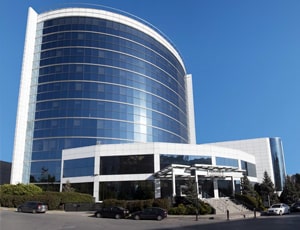
Types of Coronary Artery Bypass Grafting (CABG) in Medicana International Istanbul and its associated cost
| Treatment Option | Approximate Cost Range (USD) | Approximate Cost Range (TRY) |
|---|---|---|
| CABG (Overall) | 11471 - 28250 | 344491 - 850440 |
| On-Pump CABG | 11485 - 16916 | 348448 - 500996 |
| Off-Pump CABG | 13246 - 20064 | 410168 - 599178 |
| Minimally Invasive CABG | 16769 - 22425 | 506431 - 678040 |
| Robot-Assisted CABG | 20404 - 28681 | 611792 - 857505 |
| Redo CABG | 13559 - 20217 | 408806 - 614228 |
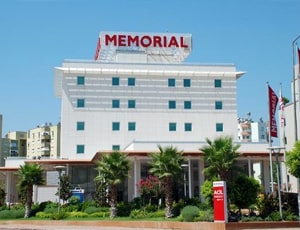
Types of Coronary Artery Bypass Grafting (CABG) in Memorial Antalya Hospital and its associated cost
| Treatment Option | Approximate Cost Range (USD) | Approximate Cost Range (TRY) |
|---|---|---|
| CABG (Overall) | 11376 - 28116 | 336839 - 847238 |
| On-Pump CABG | 11240 - 17143 | 341458 - 497990 |
| Off-Pump CABG | 13541 - 19832 | 400011 - 602694 |
| Minimally Invasive CABG | 16636 - 22881 | 510277 - 671950 |
| Robot-Assisted CABG | 20607 - 27771 | 608698 - 855692 |
| Redo CABG | 13290 - 20394 | 409648 - 608545 |
Coronary artery bypass grafting (CABG) is a type of an open heart surgery that intends to improve the flow of blood to the heart. It involves the placement of a coronary artery bypass graft, which is retrieved from a healthy artery in the body, and placed in the position of the blocked portion of the artery that supplies blood to the heart. CABG surgery is a complex, yet common procedure.
A waxy substance called plaque may deposit in good amount in the coronary arteries of the heart over a period of time. As time advances, the plaque starts hardening and eventually ruptures and breaks open. The plaque interferes with blood flow as arteries grow narrow at the affected region. A blood clot develops when the plaque ruptures. The artery may get blocked completely is the size of the clot is big enough to stop the flow of blood to the heart. This may eventually lead to serious events such as heart attack and also put the individual at the risk of death.
The person may experience chest pain and discomfort when the heart is deprived of rich oxygenated blood This pain is referred to as angina. Breathlessness and fatigue are some of the other problems associated with coronary heart disease.
Coronary artery bypass surgery aims at improving the overall blood circulation to the heart. A part of healthy artery or vein from another part of the body is taken and is grafted or connected to the blocked coronary artery for bypass. This artery or vein goes around the blocked portion of the coronary artery and establishes a new path for the blood to flow to the heart, thus reducing the chance of a heart attack. In a single surgery, surgeons can bypass multiple coronary arteries. Severe blockages can be treated with this procedure.
CABG is conducted when there are one or two blockages in the artery. High risk CABG is conducted when there are multiple blockages in the artery and the blood flow to the heart is severely restricted.
There are two approaches to conduct CABG – open heart surgery and laparoscopic bypass heart surgery. The latter is a type of minimally invasive heart bypass surgery, which involves the creation of smaller incisions. This results in minimum discomfort and complications and allows for faster recovery and healing.
Laparoscopic bypass heart surgery is mostly preferred when there is not much blockage in the coronary artery. Open heart surgery, on the other hand, is conducted in complicated cases. High-risk CABG is mostly conducted as an open heart surgical procedure.
Patients are transferred to the ICU right after the surgery and shifted to the patient ward a day later. Heart rhythm disturbances are discovered in 25 percent of the patients within a period of 3 or 4 days after the surgery. They are temporary atrial fibrillations associated with surgical trauma. Such patients respond well to standard medical therapies.
They can be weaned within a period of a month after the surgery. From one week to one day, the range of stay in the hospital may vary from one patient to the other. Young patients are usually discharged within two days. The recovery time can be very long and the range of physical activities must be kept to a minimum.
Ask your healthcare adviser for the best multiple options and choose the one that meets your expectations
Coronary Artery Bypass Grafting (CABG) cost in South Korea varies from one hospital to the other. The Coronary Artery Bypass Grafting (CABG) package cost usually includes all the expenses related to pre and post surgery expenses of the patient. The treatment cost usually includes the expenses related to hospitalization, surgery, nursing, medicines, and anesthesia. Post-surgical complications, new findings and delayed recovery may have an impact on the total Coronary Artery Bypass Grafting (CABG) cost in South Korea.
Coronary Artery Bypass Grafting (CABG) in South Korea is offered by multiple hospitals across the country. The following are some of the most renowned hospitals for Coronary Artery Bypass Grafting (CABG) in South Korea:
After discharge from the hospital, the patient has to stay for another 21 days in the country for complete recovery. During this time, the patient undergoes medical tests and consultations. this is to ensure that the treatment was successful and the patient us safe to return.
There are certain expenses additional to the Coronary Artery Bypass Grafting (CABG) cost that the patient may have to pay for. These are the chanrges for daily meals and hotel stay outside the hospital. The per day extra expenses in South Korea per person are about USD 50 per person.
The following are some of the best cities for Coronary Artery Bypass Grafting (CABG) in South Korea:
After Coronary Artery Bypass Grafting (CABG), the patient is supposed to stay for about 5 days in the hospital for recovery and monitoring. The doctors team review the patient's recovery during this time with the help of blood tests and imaging scans. Once they feel that everything is on track, the patient is discharged.
There are more than 2 hospitals that offer Coronary Artery Bypass Grafting (CABG) in South Korea. These clinics have propoer infrastructure as well as offer good quality of services when it comes to Coronary Artery Bypass Grafting (CABG) Additionally, these hospitals are known to comply with the international standards as well as local legal requirements for the treatment of patients.
Some of the most sought after doctors for Coronary Artery Bypass Grafting (CABG) in South Korea are: